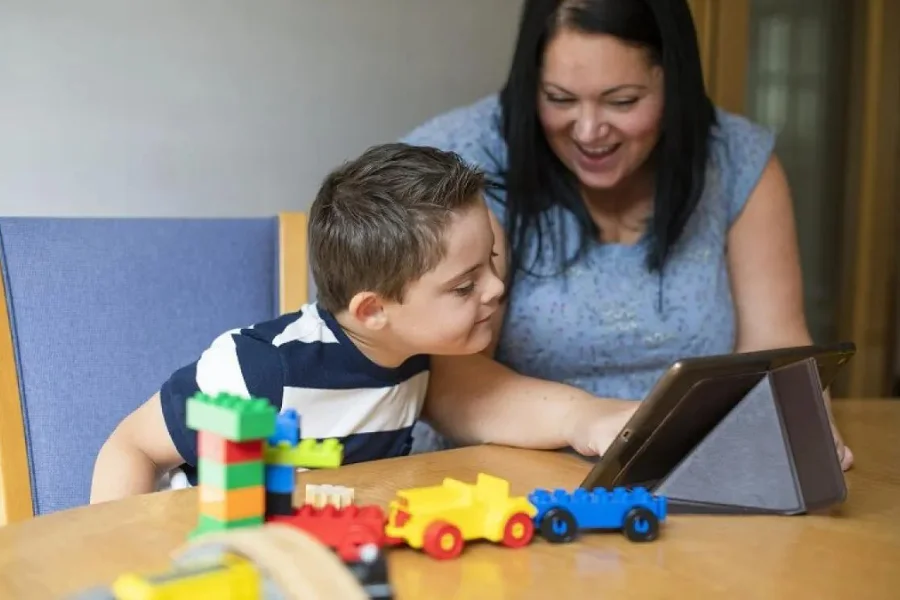
Children with Special Needs are budding learners whose ways of processing information differ compared to those of average learners. Special Needs children can merge effortlessly in a regular classroom setup when taught in a manner that aligns with their learning preference.
Special Education Programs trains aspiring special educators to gain the right skillset and the mindset for catering to the needs of special children effectively.
These programs introduce structured strategies, assistive techniques, and classroom planning tips that simplify everyday challenges. By joining courses for teachers in this field, educators learn to manage diverse needs more effectively and create a better learning experience for every child.
Empowering through Knowledge and Understanding Special Needs Learners
Understanding and supporting special needs learners requires more than just compassion—it demands structured knowledge and practical training. Many teachers face uncertainty when working with children who learn and behave differently. Courses in special education provide the tools to decode these differences, helping educators approach every student with clarity and confidence.
Here’s how these courses create meaningful change:
Clarifying Learning Disabilities Myths
Most of the time, Learning disabilities are mistaken for laziness and zero effort.
Special education courses break down conditions like:
- Dyslexia – Reading difficulties where children fail to read fluently and cannot decode words.
- Dyscalculia – Mathematical operations cannot be easily performed by children.
- Dysgraphia – A Writing difficulty when the child is not able to write in a legible writing and struggles to fit letters in their desired space.
Disability based modules help teachers to address the real causes of concern of the child, specific to the disorder they possess, and to modify their teaching approaches to align with the child’s learning styles.
Fostering Behavioural Management
How you react is a way you express yourself. So, when a child behaves in an unruly manner, there is a reason or some frustration that is leading to the behaviour.
- Learn the behaviour patterns of the child that lead to emotional issues.
- Use proven methods of structured schedules, positive behaviour rewarding for repeat behaviours.
- Shun away any punishment-based approaches and use proactive strategies such as a reward system to enable the child to try harder for long-term growth.
To download the brochure of the SEN Course, Click Here!
For more details on the SEN Course, Call/WhatsApp at +919321024137 / +919869866277
Promoting ways to foster the child’s neurodiversity needs
Neurodiversity is a condition where the child’s brain functioning is hampered due to neural dysfunction.
- Autism Spectrum Disorder (ASD) – A neurological condition where the child struggles with communication, reacts to loud sounds, and refrains from social interaction.
- ADHD – A disorder where the basic skills of the child to stay focused are affected.
Special education training is a precondition that trains teachers to adapt their teaching methods, use customized teaching approaches, and incorporate interesting methodologies to make complicated tasks easy for diverse learners, turning them into confident learners.

Source: istockphoto
Teach Smarter with Tools that Transform Your Day?
In today’s educational arena, there are plenty of resources available to choose from to create meaningful lessons and strategies that help teachers achieve their learning outcomes and reduce the stress level of children. The right tools can help manage this diversity more effectively and make each teaching day more productive.
Here is how you can teach smarter using tools that truly transform:
Differentiated Instruction
- Adjusts lessons to fit different learning styles and abilities.
- Offers varied content formats—visual, auditory, and hands-on activities.
- Promotes flexible grouping, pacing, and assessment options.
This strategy focuses on providing the child with academic assistance as per their requirements without having to prepare a separate lesson plan for all.
Innovative Technological Aids
- Graphic organizers, innovative audio apps can be used to support struggling learners.
- Speech-to-text tools help children handle their writing challenges.
- Interactive smartboards help children to engage completely and participate without any prejudice.
Using these techniques helps children to be on the same page as their peers when it comes to academics.
Practical Resources
- Ready-to-use worksheets, visual aids, and behavior charts simplify planning.
- Lesson templates and digital platforms save time on routine tasks.
- Effective Classroom management skills minimize any distractions
When teachers use these resources, they tend to devote more time to concentrating on the teaching aspect rather than spending hours calming children down.
By combining differentiated instruction, assistive tech, and practical resources, educators can transform their day-to-day work, making teaching more efficient, inclusive, and rewarding.
To download the brochure of the SEN Course, Click Here!
For more details on the SEN Course, Call/WhatsApp at +919321024137 / +919869866277
Tailored for Today’s Classroom Challenges
In today’s context, the most recent development is that today’s students possess different academic skills, ranging from low to high, along with differing emotional requirements and learning styles. Most instructional methods do not suffice, resulting in educators applying teaching methods geared towards solving pragmatic classroom problems. Programs and materials designed with an understanding of current realities offer organized and holistic frameworks that promote scholarly and emotional development.
Here’s how they help:
Aligning with IEP Goals
- Teachers learn to design lessons that meet Individualized Education Program (IEP) objectives.
- Strategies include breaking down tasks, using visual supports, and modifying assessments.
- These approaches ensure that students with learning needs can progress alongside their peers.
- With proper training, educators can confidently translate IEP goals into daily classroom practices.
Supporting Emotional Regulation
- Emotional difficulties can interrupt learning, so courses focus on identifying and addressing them early.
- Methods include creating calm corners, using emotional check-ins, and teaching coping skills.
- Teachers are equipped with strategies that help children handle their emotions better and any triggers well.
- Emphasizing emotional health helps children to gain confidence in expressing themselves and feel valued and respected.
Meeting Current Educational Standards
- Strategies taught are aligned with modern curriculum expectations and policy guidelines.
- Emphasis is placed on inclusive teaching, progress tracking, and data-driven instruction.
- Educators learn to adapt without compromising academic goals or classroom flow.
- These up-to-date methods help teachers stay updated while being responsive to each student’s needs.
When teaching methods are tailored to real challenges like IEP management and emotional regulation, teachers can create classrooms that are not only functional but also supportive and forward-thinking.

Real Teachers, Real Success Stories
Real change in the classroom starts with the right training, and many educators are proving it every day. Through Diploma in Special Ed Courses, teachers are gaining the tools they need to support students with diverse needs and create a lasting impact. These aren’t just theories; they’re real success stories from classrooms across the country.
Here’s how educators have transformed their teaching:
- After completing the Diploma in Special Ed Courses, teachers reported stronger classroom management and improved student engagement.
- From the program, numerous pedagogues reported how confidently they could assist school-aged children with learning disabilities using systematic techniques taught in the program.
- Those emotional and behavioral challenges that seemed to be previously unmanageable are now dealt with calmly through the aid of the insights gained from these specialized courses.
- Instructors saved time spent on planning and intervention as the course provided them with well-crafted, practical materials designed to be applied immediately.
- Diploma in Special Ed Courses not only build understanding but also prepare teachers to implement real solutions. Several have mentioned how these programs reshaped their teaching approach and built stronger student relationships.
Vidhyanidhi Education Society (Govt. Regd.) offers Diploma in Special Ed Courses that focus on practical application, modern teaching tools, and inclusive methods. For teachers ready to grow, these courses are making a real difference—one classroom at a time.
Join Vidhyanidhi Education Society’s (Govt. Regd.) SEN Course Today! Support Growth, Spark Potential, Transform Lives!
To download the brochure of the SEN Course, Click Here!
For more details on the SEN Course, Call/WhatsApp at +919321024137 / +919869866277
How Courses for Teachers in Special Education Help Save Time & Teach Smarter?
FAQs
What is the Best Suggestion to a Teacher?
The Best suggestion to a teacher is to observe each child closely, note their strengths and triggers, and accordingly create a conducive and happy learning environment for them.
What do Teachers Spend Most Time Doing?
Teachers spend most time creating a print-rich classroom environment coupled with lesson plans and methods that reinforce the topics and address every child’s needs.
Which Learning Option is More Affordable and Flexible?
Online courses like those offered by Vidhyanidhi Education Society are more affordable and flexible, making them ideal for working teachers.



